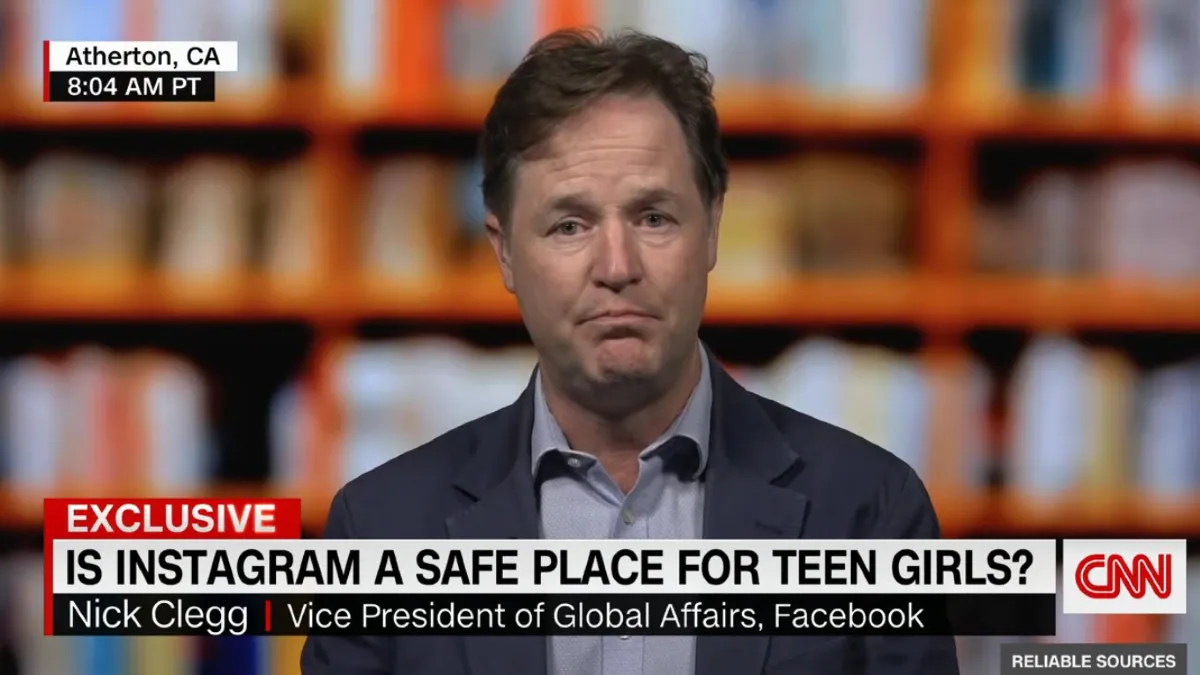Facebook spokesperson Nick Clegg defended Instagram on Sunday, saying it is a platform that makes the “overwhelming majority” of teen girls “feel better,” directly contradicting an internal investigation that not only found the opposite was true, but had a ripple effect of consequences.
Clegg made his comments on CNN’s “Reliable Sources” on Sunday, saying: “The vast majority of teen girls … say that for the overwhelming majority of them it either makes them feel better or it doesn’t make very much difference one way or the other.”
His interview came in advance of a much-anticipated segment on “60 Minutes” set to air Sunday night, with a whistleblower expected to produce still more revelations about what Facebook knows internally about the damaging effects of the platform.
“This research is a bombshell,” Democratic Senator Richard Blumenthal said of the investigation into Facebook during a hearing earlier this week. “It is powerful, gripping, riveting evidence that Facebook knows of the harmful effects of its site on children, and that it has concealed those facts and findings.”
Speaking to CNN’s Brian Stelter Sunday, Clegg was adamant in saying that people use Facebook and its counterparts because it feels good.
When Stelter compared Facebook to big tobacco companies, citing that even he feels “the tug of an addiction,” Clegg took particular offense. Expanding beyond just young, teenage users, Clegg asserted that there’s clearly a reason why these social media apps are so popular.
“They’re apps. People download them on their phones, and why do they do that? There has to be a reason why a third of the world’s population enjoys using these apps,” Clegg said. “They do it because they like exchanging their views, their feelings, their experiences.”
According to the whistleblower’s leaked research, Facebook has known about the harms of its services, including teenage girls saying that Instagram made them feel worse about themselves, for years. It was a finding that repeatedly came up in their studies.


